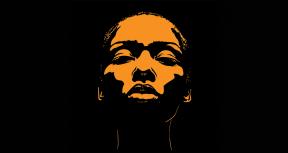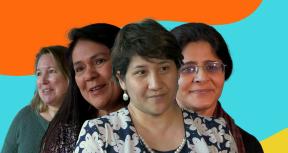Building on my last blog entry, I want to talk more about behavioral economics – a science that is taking the world by storm, has earned Daniel Kahneman the Nobel Prize for Economics in 2002, and is the focus of the 2015 WDR.
Basically, this work demonstrates that human beings are not as rationale as economics assumed. Now, some of us might reflect on a life full of examples that tell us so... and today scientific experiments show that this is so. People do not act on evidence or knowledge, but their emotions when making decisions. They learn better when they feel good about themselves, while becoming defensive when feeling attacked, and have little motivation to change or perform better when their behavior is monitored especially when they perform complex tasks (rather than simple ones) that require initiative and creative thinking (Career analyst Dan Pink gave a particularly interesting TED Talk on this).
If this is so, what does that mean for evaluation?
Doesn’t this show that accountability and learning are irreconcilable? Yes, if accountability is equated with and practiced as a blame game. But, a culture of blame – one that looks for the culprit and works through shame that results in cover-ups of problems – is different from one of accountability, where roles and responsibilities are clear and are associated with trust and respect that people will fulfill their roles, live up to their promises, and do their best to prevent mistakes and learn from those that are avoidable. Unfortunately, many organizations confuse blame and accountability, and perpetuate a culture of blame while trying to fix the “culprits of risk”. As evaluators, we can choose to be part of the blame culture, or step out of it and make the effort to check our words and our actions to ensure we use constructive criticism, and do so to help undo a culture of blame.
If evidence does not matter in decision-making, why should we be so concerned with perfecting our skills, advancing our methods? For one: our professional ethos demands of us to do as sound a job as we can – and sound means the best methodology, and even better a mix of methodologies, and not just one – to generate meaningful insights. And, as all of you would have experienced: nothing gets emotions higher than poor methodology that generates faulty information, draws wrong conclusions and makes irrelevant or even harmful recommendations. If emotions drive final decision-making to act, you want people to have the highest respect for your work, and using the best methods is one way to achieve that.
And finally, our approach of tracking – whether it is planned versus actual, or whether learning has taken place – does that not contradict today’s modern people who derive pride out of their work, are self-motivated and thrive in a culture of autonomy, mastery and purpose? Maybe this is the hardest one for us to crack: we all can imagine how we would flourish in such an environment, and yet experience all too often that people do not behave this way. Often it is the system, the corporate culture that holds us back, especially in large, complex organizations that on one level demand people to be self-driving, while not creating the right environment for them to do their best. Evaluations that look for the “why” of success and failure, including systems issues can help explain and rectify these problems.
Evaluators are part of a profession that is at a cross-road: we have invested in perfecting methods and setting up systems that should make us more successful, and now we need to invest in translating the insights from behavioral economics into our practices. Our challenge is to demonstrate with our work that we are not part of the blame game, that our evidence stands up to scrutiny, and that through our interactions, we can tap into a dialogue that influences change.








Add new comment